
The red-toothed shrews of the subfamily Soricinae are one of three living subfamilies of shrews, along with Crocidurinae and Myosoricinae. In addition, the family contains the extinct subfamilies Limnoecinae, Crocidosoricinae, Allosoricinae and Heterosoricinae. These species are typically found in North America, northern South America, Europe and northern Asia. The enamel of the tips of their teeth is reddish due to iron pigment. The iron deposits serve to harden the enamel and are concentrated in those parts of the teeth most subject to wear. Members of the genera Chimarrogale, Nectogale, Neomys (Nectogalini) and some members of Sorex (Soricini) are known as water shrews, due to having a semi-aquatic lifestyle.
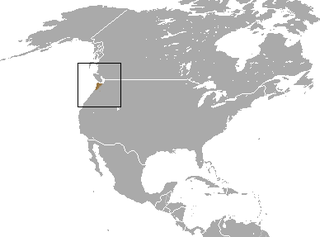
The Olympic shrew is a rare species of shrew that lives in only 13 spots in northwest Washington state and, a recent discovery, in Burns Bog, located in Delta, BC.

Baird's shrew is a species of mammal in the family Soricidae. It is endemic to northwest Oregon. Baird's shrew inhabits moist conifer forests.

The Buchara shrew or Pamir shrew is a species of mammal in the family Soricidae. It is found in the Pamir Mountains in Tajikistan, Kyrgyzstan, and Uzbekistan. It lives in mountain birch and poplar forests on slopes and piedmonts.

The Kamchatka shrew is a species of mammal in the family Soricidae. It is endemic to Russia.

The Iberian shrew or Lagranja shrew is a species of mammal in the family Soricidae. It is found in Portugal and Spain.
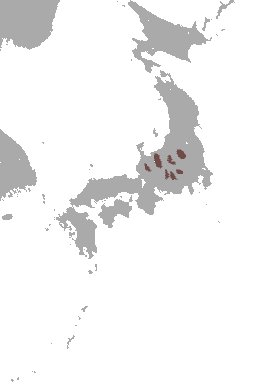
The Azumi shrew is a species of mammal in the family Soricidae. It is endemic to Japan, where it is found in the mountainous regions of central Honshu Island. It is a close relative of the Eurasian least shrew. It is threatened by habitat loss.

The Pribilof Island shrew is a small, short tailed species of mammal in the family Soricidae (shrews). It is endemic to and found only on Alaska's Pribilof Islands. Due to its distinct tricoloured coat, it was originally thought to be related to the Arctic shrew, but it is in fact much closer to the Cinereus shrew in its geographical distribution and morphological traits. Not much is known about the population size, breeding habits, ecology, and the general biology of the shrew.
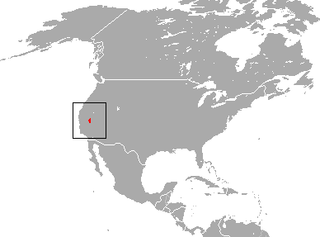
The Mount Lyell shrew is a species of mammal in the family Soricidae. It is named for Mount Lyell in Yosemite National Park, the area where the shrew has been most commonly found.

The montane shrew is a species of mammal in the family Soricidae commonly known as the dusky shrew. Monticolus is derived from the Latin root word mons meaning mountain. It is found in Alaska, western Canada, the western United States in Washington, Idaho, Montana, Utah, Colorado, New Mexico, Arizona, Oregon, Nevada, and California, as well as in Mexico.
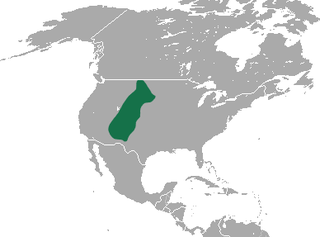
The dwarf shrew is a species of mammal in the family Soricidae endemic to Arizona, Colorado, Montana, Nebraska, New Mexico, South Dakota, Utah, and Wyoming in the United States. The type locality is Estes Park, Colorado, USA.
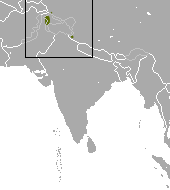
The Kashmir pygmy shrew is a species of mammal in the family Soricidae. It is found in India and Pakistan.

The Apennine shrew is a species of shrew in the family Soricidae. It is endemic to Italy.

The Caucasian shrew is a species of mammal in the family Soricidae. It is found in Armenia, Russia and Turkey.

The San Cristobal shrew is a species of mammal in the family Soricidae. It is endemic to Mexico. It is known only from the Huitepec Ecological Reserve west of San Cristóbal de las Casas in the Chiapas Highlands of central Chiapas. It is found at 2,743 m (8,999 ft) elevation in montane cloud forests.

The Inyo shrew is a species of shrew found in the western United States. It is light gray and white in color, with a narrow skull and small body size, very similar in appearance to the related dwarf shrew, but paler and not as large. It can be found in many different habitats, from rocky, mountainous regions to wetlands and riparian areas. Not much is known about its behavioral and reproductive habits. While barely studied, their population is believed to be stable and not under any threat.
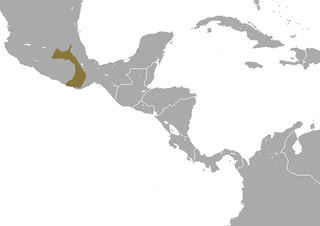
The chestnut-bellied shrew is a species of mammal in the family Soricidae. It is endemic to Mexico.

The New Mexico shrew is a species of mammal in the family Soricidae. It is found only in New Mexico in the Capitan and Sandia-Manzano Mountains.

The Valais shrew is a species of mammal in the family Soricidae.
The Dneper common shrew is a species of mammal in the family Soricidae.


















